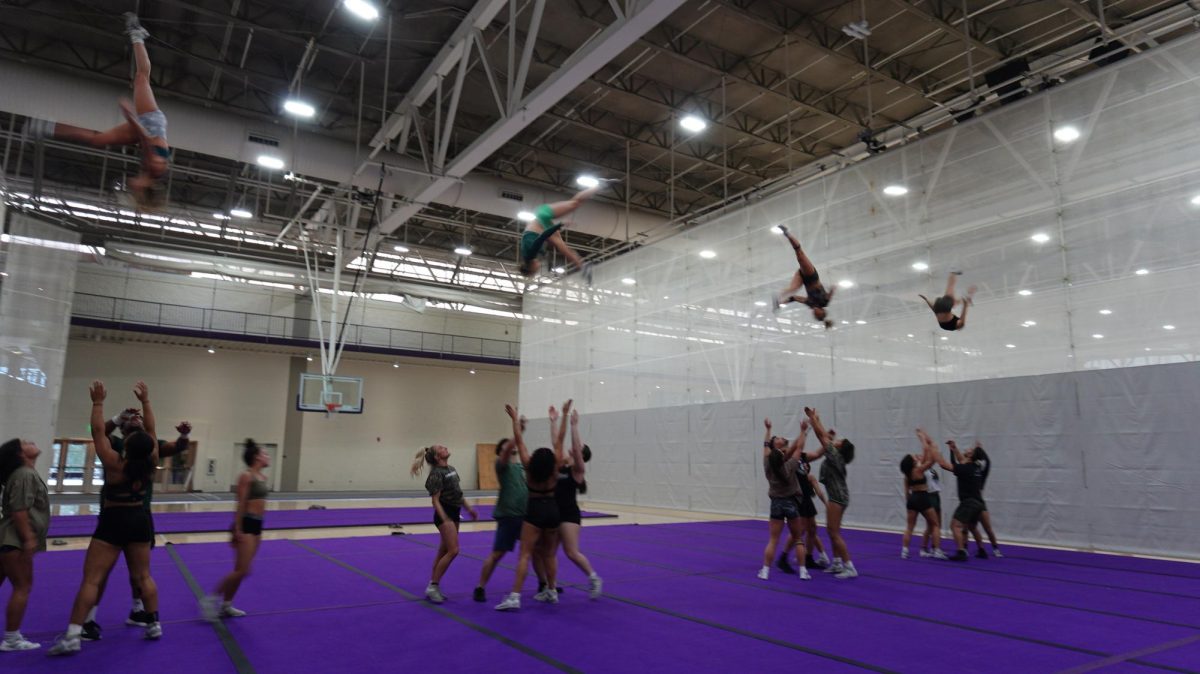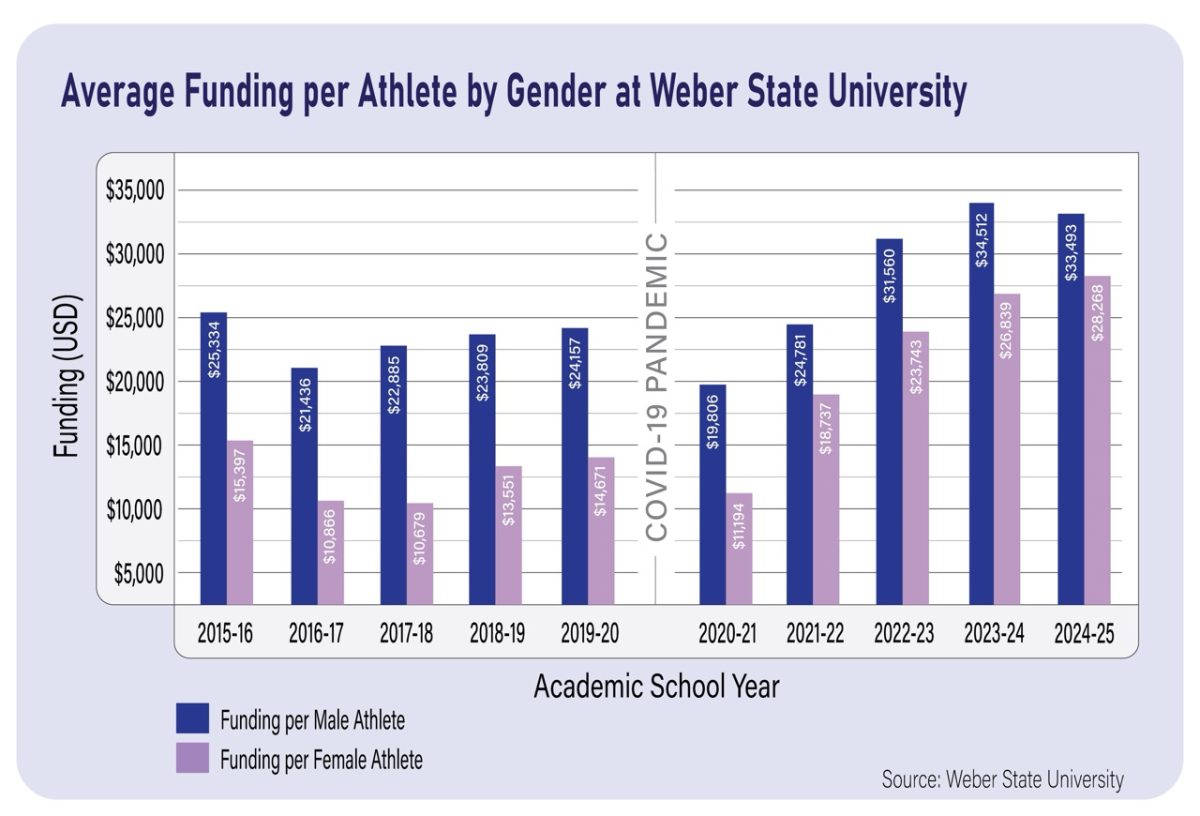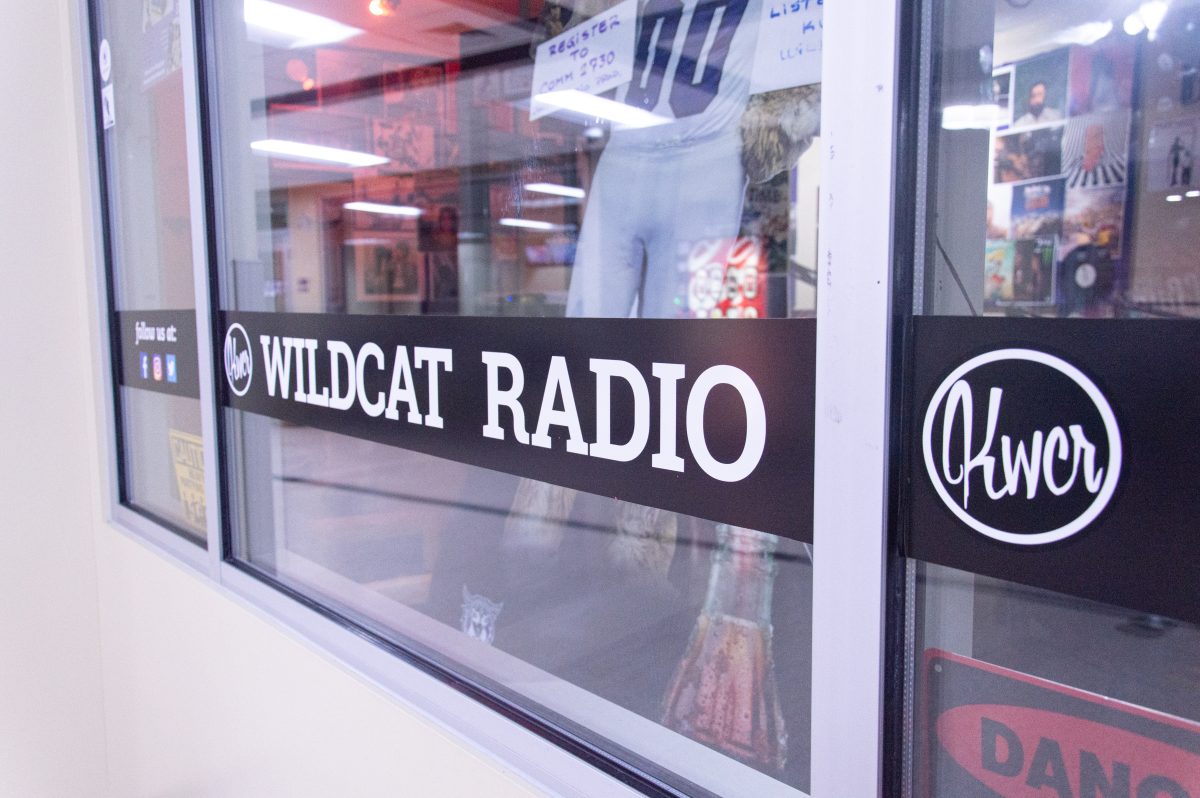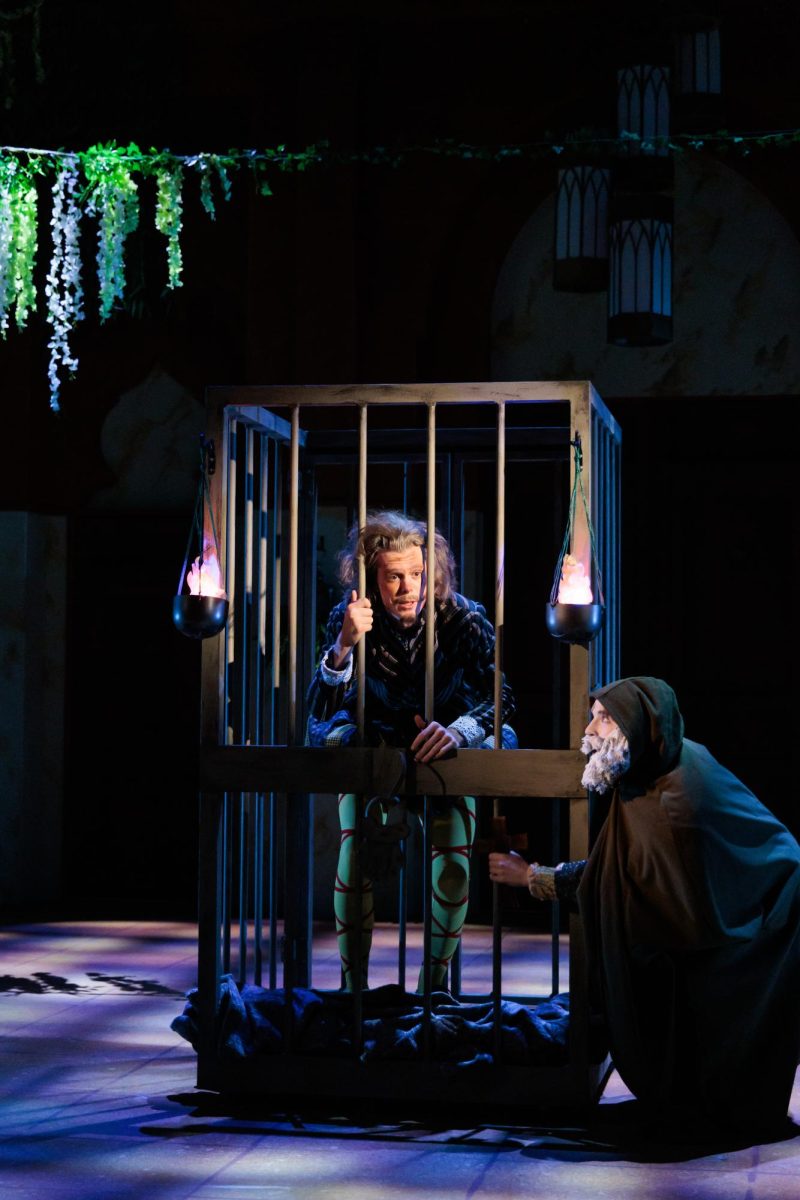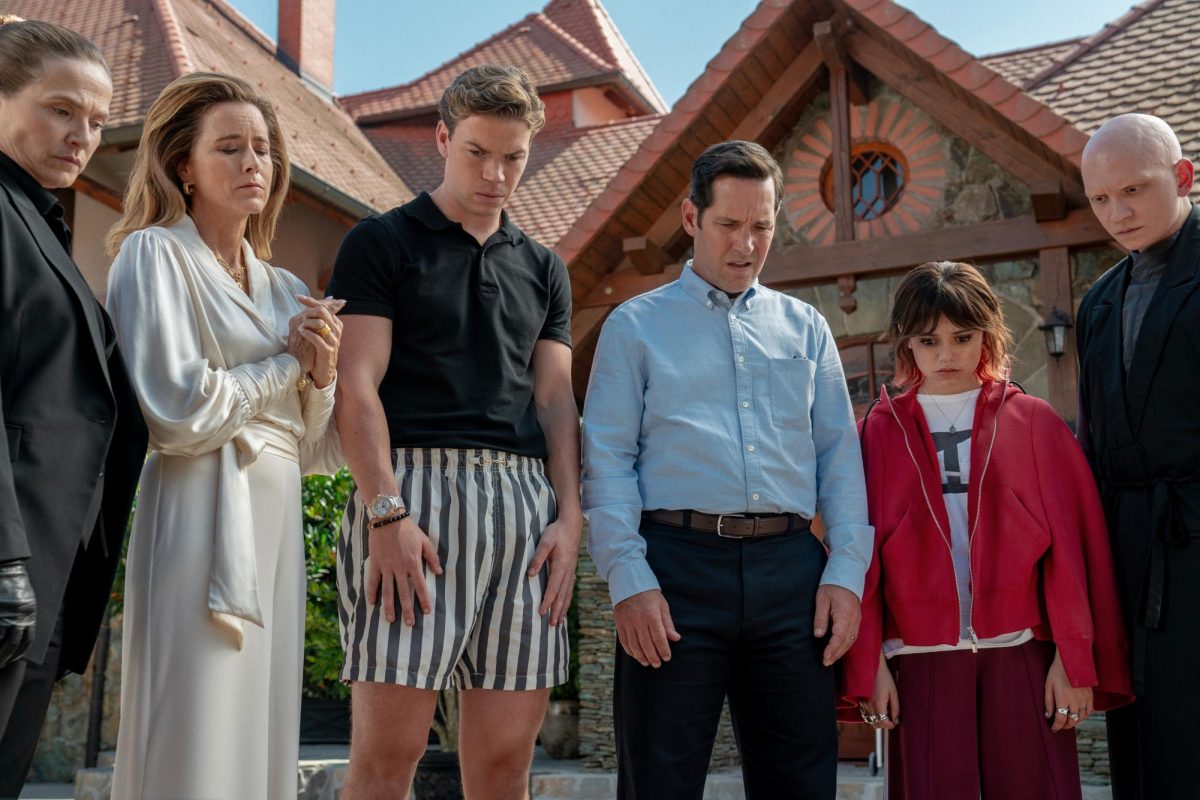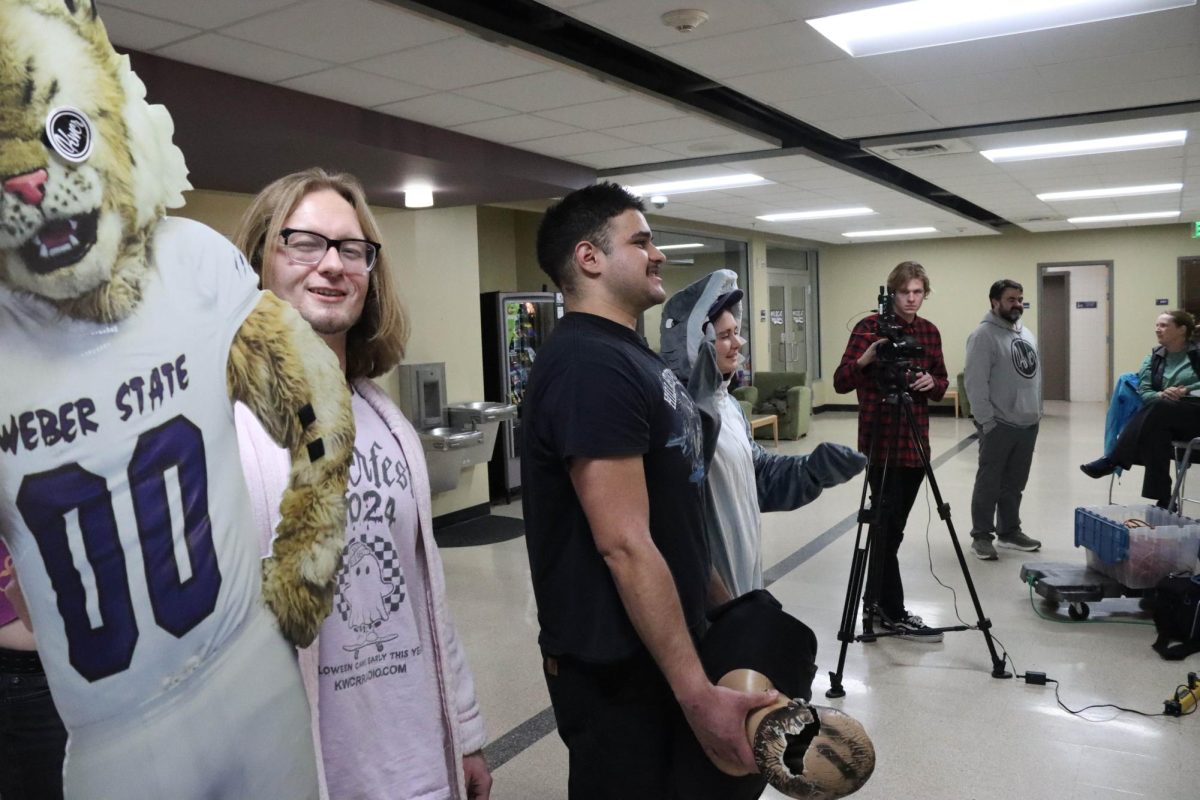
Unique and powerful stories have been the backbone of culture and literature for millennia, and storytelling has played a vital role in the preservation and documentation of history. Every culture, every people, every nation has its own stories. They shape character, empower the impoverished, define cultures and entertain the unamused.
Steve Denning, former director of World Bank, said throughout the 20th Century, storytelling was suppressed, despite its importance. However, he explained, “The effort to suppress storytelling was unsuccessful. Storytelling, though despised, lived on in the cracks and crevices of society — in the cafeterias, the corridors, around water coolers, in bars and restaurants, living rooms and bedrooms. … It turned out to be a central characteristic of being human.”
It is the human connection derived from storytelling that motivates National Storytellers Bill Lepp and Kim Weitkamp, who were a part of the Storytelling Festival at Weber State University.

The 21st Annual Storytelling Festival honored the tradition of oral storytelling over a three-day period. The festival ran from Feb. 27 to Feb. 28, featuring SLAM storytelling, stories for children and a story symposium titled, “Crafting the Perfect Story,” which was presented by Lepp and Weitkamp.
Both Lepp and Weitkamp developed passions for storytelling in their homes. However, their journeys to become national storytellers were vastly different.
“I grew up in a family where the truth was fluid. Telling the truth wasn’t all that important,” Lepp said. “If it could be told in a more interesting way, why not?”
To Lepp, storytelling is about making his audience happy. “I do have my intentions with my stories,” Lepp said, “but my goal is to make you laugh. I’ve been called the ‘jelly doughnut’ of storytelling. Well, people like jelly doughnuts.”

In contrast to Lepp, Weitkamp discovered a love for stories after being exposed to a wide array of television shows when her family left the Mennonite faith.
“I would eat the stories that were on television,” said Weitkamp, who would subsequently write her own TV and movie scripts for her family and friends to act out.
After discovering that she “needed a captive audience,” Weitkamp became a pastor before entering the professional storytelling world.
So what makes the perfect story? Why are some stories passed on for generations while others dwindle into nothingness?
“All good storytelling is a conversation,” Lepp said. He aims to connect with his audience, to anticipate their potential interjections and to interact with them as he tells his story.
Weitkamp agreed, adding, “Story, to me, is never perfect. … We constantly evolve our stories” based on the audience’s reaction. Expert storytellers pay close attention to the nonverbal communication of their audience to understand which aspects of their stories they could improve. Connecting with the audience is one of the most important aspects of being a successful storyteller, according to both Weitkamp and Lepp.
It’s in the quiet moments of a performance that Weitkamp can recognize whether or not she has achieved her goal of impacting her audience. “One of the best gifts a storyteller can possess is the gift to know when to be silent,” she said.






